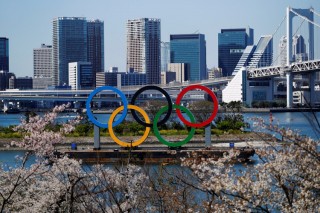Loading
Search
▼ Japan Counts The Many Costs Of The Delayed Olympics
- Category:Event
The bill for a one-year postponement is expected to be $6bn, and the disruption is like a ‘kick in the guts’
Tokyo — Japan’s Olympic delay has upended years of careful planning by organisers and spawned costly headaches for small businesses, hotels and even pro baseball teams, compounding a $12bn price tag.
The Tokyo Games were postponed until 2021 last week as the coronavirus outbreak deepened, an unprecedented move in the 124-year history of the modern Olympics. New dates have yet to be set, leaving sponsors and businesses uncertain and scrambling.
For Japan, a one-year postponement is likely to cost ¥641bn, or about $6bn, according to Katsuhiro Miyamoto, an emeritus professor of economics at Kansai University who studies the economic effect of the Olympics.
He believes the bulk of that, ¥423bn, will be from actual costs — things such as venue maintenance, reprinting of marketing materials and hiring new volunteers — with the remainder coming from a broader blow to the economy.
That is on top of the $12bn Japan spent in the run-up.
The head of the International Olympic Committee (IOC) has said the delay will mean additional costs for everyone.
For Grapestone, which sells banana-shaped sponge cakes filled with custard, the delay has been a disaster for the Olympic-themed “Tokyo Banana” confection it spent a year developing.
Grapestone’s sales had been falling since February, when the coronavirus started to hit tourism. Now vendors are saying they do not want cakes decorated with the 2020 Games logo.
“We’ve never seen such a dramatic fall in sales,” said spokesperson Yukiko Ohno, without detailing the decline. “Since the Olympics were delayed, we think a lot fewer of our customers feel they have to have the cakes right now.”
The company has cut back production at its plants in nearby Saitama. It also makes cherry blossom- and panda-themed cakes, but Ohno said the Olympics one is made with rice flour, to give tourists a “taste of Japan”.
Delay uncertainty
Japanese sponsors, who have paid a record $3bn to be associated with the Games, have complained privately about the uncertainty of the delay. Unlike global Olympic sponsors, most ofthe Japanese firms have signed up just for a year.
“We need to negotiate whether our current contract can be extended or needs to be re-signed with additional costs,” said a representative of one sponsor. “It’s not even clear whether we can continue to use the rights or not.”
Venues pose a particular problem for organisers. Tokyo Big Sight, a colossal exhibition hall on the eastern side of the city, was booked as the Olympics media centre to hold thousands of journalists.
It is unclear whether Big Sight, which is owned by the government, will be available next year given that bookings are taken far in advance. The venue has already entered into contracts for 50 bookings in the year starting in April and is in talks for 200 more, said spokesperson Mayumi Inoue.
She said it was not possible to make room for the Olympics if other events were going on. “It has to be one or the other.”
Jingu Baseball Stadium, home to Tokyo Yakult Swallows professional team, was planned to be used to store equipment by organisers during the Olympics, a Swallows spokesperson said.
The team had planned to play at the Tokyo Dome, home of crosstown rivals the Yomiuri Giants, between July and early September, but is now checking whether it still needs to, the spokesperson said.
Another area team, the Yokohama DeNA Baystars, arranged to play its home games elsewhere — including in Niigata, about 350km away — because its ground was to be used for Olympics baseball. Baystars spokesperson Yasuhiro Kawamura said the team was working with the baseball association on its schedule.
Cancelled programmes
Public broadcaster NHK and private broadcaster Fuji Television Network both said they cancelled programmes due to the postponement. Three other private broadcasters did not respond to a request for comment about programming changes.
The Olympic Village, which is designed to house more than 10,000 athletes, could prove one of the biggest headaches. It is due to be converted into luxury apartments, many of which are already sold. Tenants are supposed to move in by 2023.
One woman who bought a flat in the village with her husband said she was unsure about the move-in date. “I still haven’t figured out what’s going to happen,” she said. “It would be troubling if the Olympic Village were used over an extended time period without our consent.”
Sales of the flats and showroom tours have been suspended until further notice, Mitsui Fudosan Residential, which is leading the real estate project, said on Monday.
About 4.5-million tickets have been sold for the Olympics and another 970,000 for the Paralympic Games. Organisers say they have not decided yet how to handle tickets, though Japanese media have reported the tickets would be valid for the same events next year.
Tokyo organisers have about 3,500 people on staff, with a number of those seconded from the government or sponsoring companies.
“Many of the temporary staff are wanting to get back to their own organisations so this will affect their motivation,” said one Olympics insider about the delay.
The postponement will heap more pain on hotels, which have been battered by coronavirus.
“The drop in sales we’re seeing is brutal,” said Shigeki Kitahara, president of the Ryokan and Hotel Association, who owns a traditional ryokan hotel himself. With bookings often made far in advance, it is difficult for owners to shift plans quickly, he said. “It’s a real kick in the guts.”
- March 31, 2020
- Comment (1)
- Trackback(0)



[url="http://tinderdatingsiteus.com/?"]tider [/url]
CharlesRag Web Site- February 10, 2021